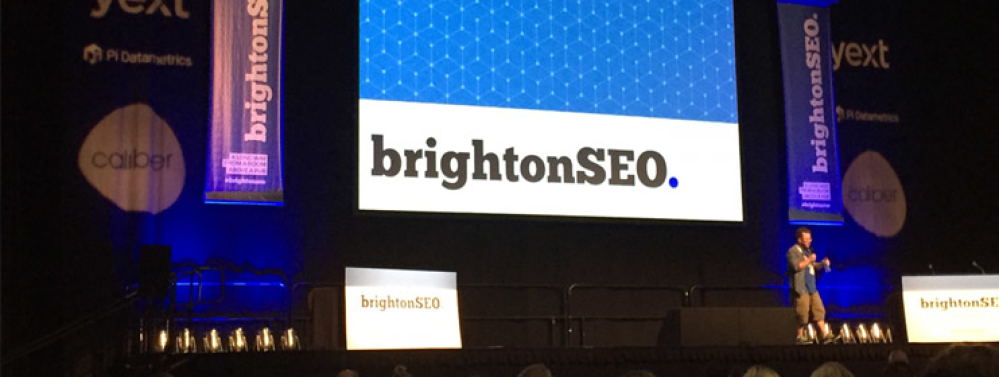Five swashbuckling trends set to shake up your SEO strategy
12 Sep 2016

Once again, one of the most energetic and respected natural search conferences in the UK, BrightonSEO, brought together thousands working in SEO and a host of experts sharing their insights. Hereâs our take on the top five SEO trends to look out for.
User-generated content
Kelly Smith, associate content consultant
âAs Google seeks to align its objectives with user intent and experience, content thatâs created, endorsed or shared by a brandâs consumers will naturally become more predominant in search results.
Customer reviews as a whole are already an important ranking factor â particularly for ecommerce, given their influence over online purchases. But they can also tick lots of other SEO boxes. As well as being a regular source of fresh, original and relevant content, reviews are likely to be rich in useful facts and nuanced customer language that Google will deem perfect for answering long-tail search queries.
User-generated content isnât limited to the likes of reviews, forums and social media â with some savvy content planning, there are plenty of ways a business could co-create with its audience to increase online visibilityâ¦â
Facebook advertising
Sophie Page-Britton, senior account manager
âThanks to its hyper-targeting abilities, Facebook advertising can be an effective sidekick for a local SEO strategy. By pinpointing potential customers based on location, age, gender and interests, the ads can help to drive relevant website traffic and engagement levels â and therefore help to extend a brandâs long-term visibility and ranking power.
Targeted ads can also work as a link-building tactic, as part of a PR outreach strategy. Through Facebook, brands can target brand influencers â bloggers, journalists, local TV and radio stations â to increase visibility and encourage links and citations. Relevant links and third-party content are, of course, integral to how Google perceives a brandâs website, and in turn how it ranks.â
Unique ideas
Laura Caun, content manager
âIn the SEO world, quality content is key. What drives quality content? Ideas.
A content idea should be unique and add value. With over a billion websites in existence, brands must stand out. They need to explore the market, clients, competitors and what they are doing. What makes them different?
Their big idea should compel people to think, feel or do. Is it original? Is it relevant? Why should customers care? Will it provoke them into action? Great content is attuned to the audienceâs interests and concerns. Get it right, and brands will climb the rankings and onto customersâ radars.â
Voice search
Aiste Narvilaite, account director
âThe future of search lies with voice-operated intelligent personal assistants (IPAs) â think Apple Siri or Amazon Echo. IPAs enable rapid hands-free communication, from answering verbal questions and sending texts to organising playlists.
Voice queries can often be more conversational than a text enquiry, so brands should look to simplify the keywords theyâre using. Using schema mark-up â indexing code that tells search engines to show specific detail on the results page â will also be key to mobile voice searches.
Voice search enables all users to search with ease, meaning that children, or those with visual or physical impairments, have a much-improved search experience. This provides a brilliant opportunity for brands to extend their visibility.â
Paid search, in moderation
Matt Bowell, head of client services
âClearly, thereâs more to search than conspicuous display ads hovering at the top of web pages. Brands need to focus on creating consistent, useful content that is evergreen, as opposed to low-quality pages riddled by obvious advertising. And overall, content marketing has a better return on investment than paid search.
While ads may deliver instant results â a quick fix, even â itâs failing to impress consumers, so should only be a supporting act rather than a starring role in a brandâs SEO strategy. Companies need to invest in content marketing holistically⦠and honestly (i.e., free from fluff and jargon).â
So now youâve got plenty of information to get your SEO strategy up to speed, youâll be ready to soar up the search rankings. Why not sign up to our blog to stay in the loop on all things digital?
Hear more from the DMA
_56bb6c6b782e9.png)
Please login to comment.
Comments